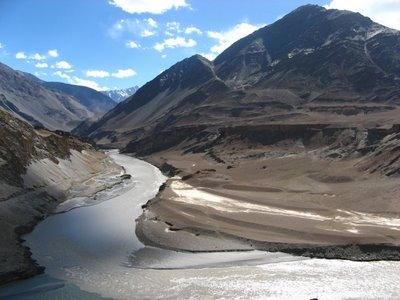Lahore:
“Take trouble for yourself, if it’s your nature, but don’t lend it to your neighbors.” The English journalist, the classic adage of Rudyard Kipling perfectly sums up the recent provocative role of India in the climbing of bilateral tensions between the two rival nations by limiting humanitarian exchanges.
During the last month, New Delhi has always ignored the diplomatic path to the creation of peace, while simultaneously adopting an attitude of war against Pakistan, regardless of international law. After unilaterally suspending the industrial waters treaty and launched several missile attacks targeting civilians in major cities, the Narendra Modi administration brought the conflict to a whole new level by stopping the movement of pilgrims and the treatment of patients.
Shahid Ali, a father of Larkana, went to India for the treatment of his two children with heartache. “After climbing tensions, my two children were sent back without treatment. What did my children did? Why were they punished? I did not have enough money to pay for their treatment. After facing many obstacles, I was able to take my children for a treatment in India, but now I feel helpless,” cried Ali, who asked the government to help him in this period.
Shahid’s children are part of more than twenty-five patients who have been expelled from India. Likewise, many other patients had made an appointment in India for treatment but have been refused visas. Sources have revealed that each year, a large number of patients visit India for treatment due to its affordability.
According to official figures, between 2019 and 2024, around 1,228 Pakistani citizens received medical visas to go to India. However, the number of visas issued has systematically decreased in recent years. While 554 visas were issued in 2019, only 97 medical visas were issued in 2020, 96 in 2021, 145 in 2022, 111 in 2023 and 225 in 2024.
According to Charthry Naseer Kamboh, an international business expert, India violated international human rights by returning patients who needed treatment. “Treatment is the fundamental need for the sick person. If a patient has paid treatment in another country, while it is a friendly country or an enemy country, treatment is their fundamental right.
International humanitarian law, the Geneva Convention, the Hague Convention and the Charter of the United Nations specify that hospitals should not be attacked during the war. In addition, human populations should not be made of war targets. Women, children and the elderly must be taken care of and religious places must also be respected. However, India has violated all these laws, completely ignoring human rights in its assault, “said Kamboh.
Likewise, Farah Zia, director of the Pakistan Human Rights Commission (HRCP) thought it was regrettable that India expelled patients in Pakistan. “We are examining this and will soon give our response. Patients should not have returned from India. It is a violation of human rights,” said Zia.
In addition to the restrictions on patients, the recent conflict between Pakistan and India has also stopped religious tourism. The borders of the two countries are closed while the Kartarpur corridor was also closed by India for an indefinite period.
Palwinder Singh, head of the Yatra department of the Shiromani Gurdwara Parbandhak (SGPC) committee in Amritsar, confirmed that the names of 326 pilgrims had been subjected for visa treatment to attend the birthday of the death of Maharaja Ranjit Singh in June. However, their departure is subject to the approval of the government of the state of Punjab (India) and the central government.
Similarly, another religious event, the Martyrdom Day of Guru Arjan Dev, the fifth Sikh Guru was scheduled for June 16 in Gurdwara Dera Sahib in Lahore. However, the reports indicate that the Indian authorities prevented Sikhs pilgrims from attending this event.
On the other hand, it appears increasingly unlikely that pakistani pilgrims will be able to the come in the coming day for the urs of hazrat mujaddid alf sani, hazrat khwaja alauddin sabir kaliyari, hazrat hafiz abdullah, hazrat khwaja nizamuddin aliya and Hazrat Khwaja Moinuddin Chishti. Due to the climbing of tensions and the imminent threat of war, the borders remain closed and the deliverance of visas between the two countries has been suspended.
“Despite recent tensions, Pakistan did not cancel the visas for Indian Sikhs pilgrims, and that did not prevent them from visiting. Meanwhile, India has imposed a ban on the Sikh Gurdwara Committee Pilgrims bybandhak.
In the meantime, the chief minister of Punjab, Maryam Nawaz, assured that patients returning from India with incomplete treatment will be treated free of charge.




